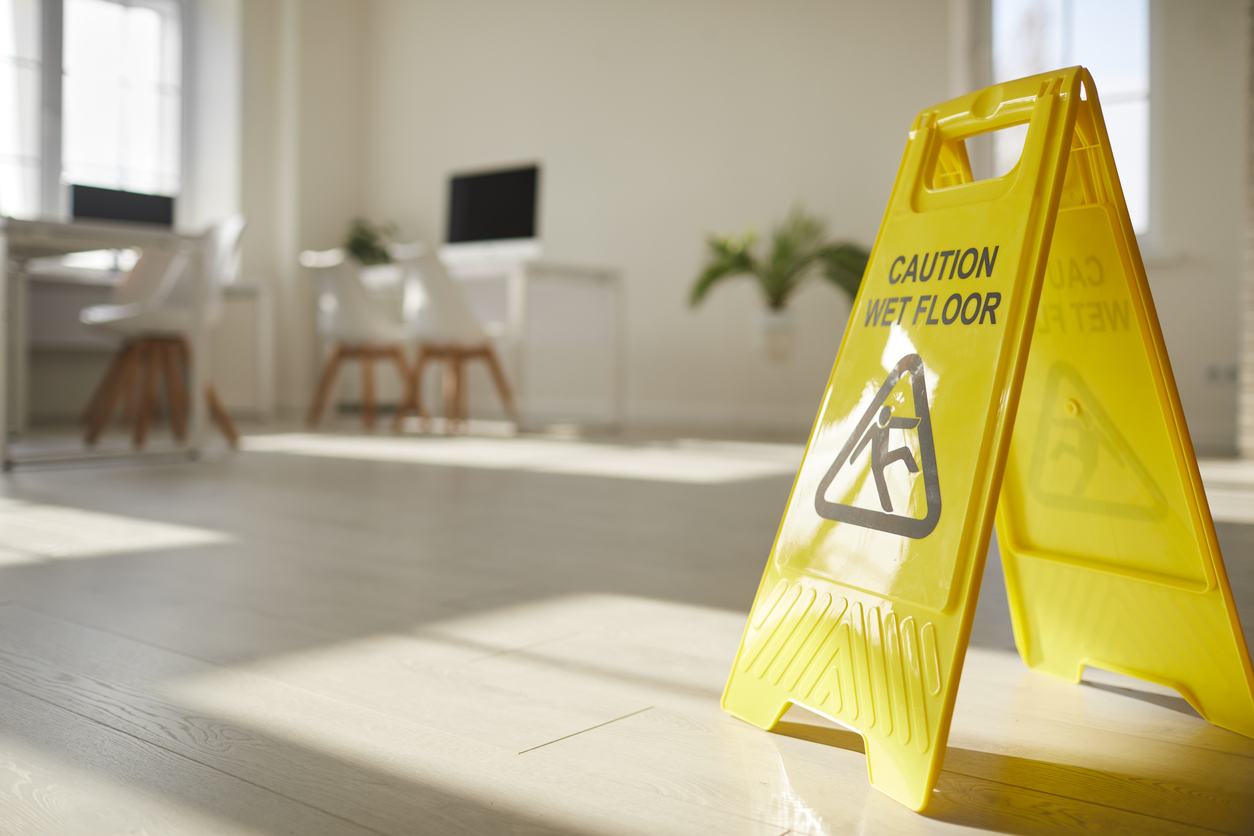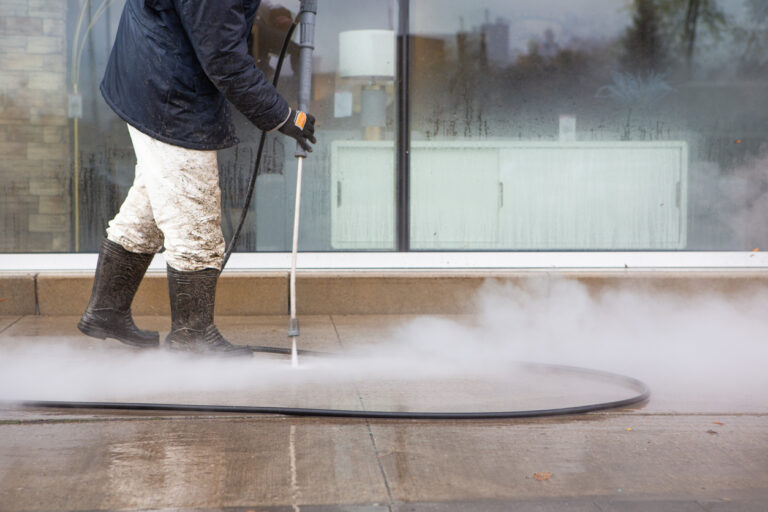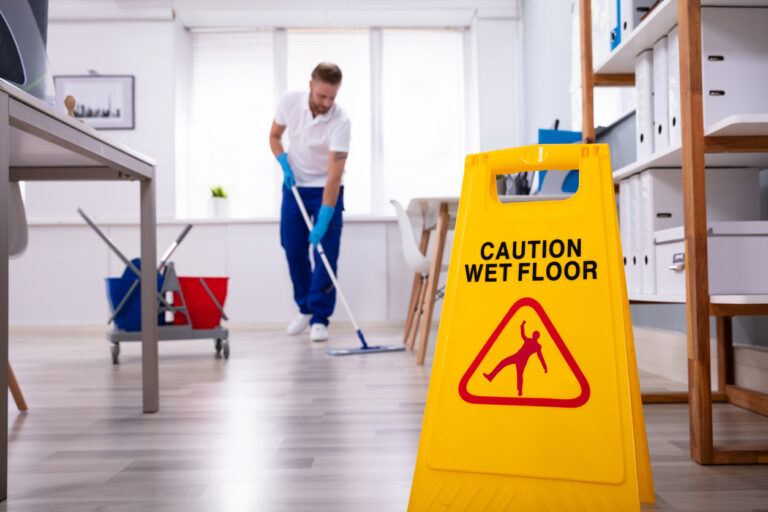Liability insurance can be lost in the hustle and bustle for some cleaning business owners — until a client demands proof of coverage or something goes wrong. Whether you’re just getting started or expanding into new types of accounts, knowing what coverage you need and why can save you time, money, and stress down the line.
This guide covers what liability insurance includes, the value it brings to your business, and how to choose the right protection without overpaying or missing key coverage. As you’re comparing liability insurance for cleaning business operations, start with policies built for your line of work.
What Liability Insurance Covers
What type of insurance is best for a cleaning company? Most start with general liability for a cleaning business. However, depending on the scope of your work, you may need a combination of policies to fully protect your business.
With the cleaning services market projected to grow to over $616 billion globally by 2030, the need for strong risk management will only increase. Here are the core coverages to reduce your risk exposures.
- General liability insurance: This coverage protects against third-party property damage, bodily injury, and legal fees. For example, if a crew member breaks a client’s mirror or someone trips over your equipment, this is the policy that responds.
- Pollution liability insurance: Important for businesses using or storing chemical cleaners, pollution liability can help cover claims related to indoor air quality, chemical spills, or accidental environmental damage.
- Employment practices liability insurance (EPLI): EPLI offers protection if an employee brings a claim related to discrimination, harassment, or wrongful termination. It becomes more critical as your team grows.
- Umbrella liability insurance: Umbrella insurance provides an extra layer of financial protection when claims exceed the limits of your underlying policies, such as general liability or auto.
Many cleaning business owners only discover they’re underinsured when it’s too late. With more clients asking for proof of insurance in contracts, having comprehensive coverage isn’t just smart; it’s expected.
Top Benefits of Liability Insurance for Cleaning Businesses
Liability insurance plays a key role in how cleaning businesses stay competitive and financially stable. It covers common risks that come with day-to-day operations. For instance, suppose a client trips over a vacuum cord or alleges damage to high-end flooring during service. Your general liability policy helps cover legal expenses, medical bills, or property repairs that could otherwise derail your cash flow.
Liability insurance also keeps you in the running for larger contracts. Many corporate facilities and commercial property managers won’t consider vendors who don’t carry minimum coverage limits, often set at $1 million per occurrence and $2 million in total. Without that proof in hand, you could miss out on steady, high-value work.
Then there’s the peace of mind factor. When you know you have the right protection in place, you’re free to focus on managing your team, growing your client base, or refining your services — without the constant worry that a single incident could put everything at risk.
Most importantly, liability coverage helps protect your bottom line. A serious claim can force an uninsured or underinsured cleaning company to shut its doors. Having solid insurance acts as a financial buffer, helping your business recover quickly and continue to operate when something goes wrong.
Tips for Choosing the Right Liability Insurance
Whether you’re selecting insurance for the first time or reassessing your needs, here’s what to look for:
- Start with general liability and build from there. At minimum, your policy should cover property damage, bodily injury, and legal defense costs.
- Check the coverage limits. Are they high enough to satisfy your biggest clients? If not, you may be disqualified before the job even starts.
- Match coverage to the work you do. Residential and commercial jobs carry different risks. If you subcontract work or use specialized cleaning chemicals, your policy should account for these nuances.
- Ask if the policy is auditable. Some insurers will adjust your premium based on revenue or payroll changes. That’s not necessarily a bad thing, but you need to know how it works.
- Watch for exclusions. General liability doesn’t cover everything. Pollution, cyber liability, and employee-related claims often require separate policies or endorsements.
Working with an agency that specializes in your industry is the best way to avoid surprises. Moody Clean Insurance helps cleaning business owners navigate policies, ask the right questions, and secure coverage tailored to their operations.
A Small Step Toward Long-Term Security
Liability insurance for a cleaning business isn’t just about checking off requirements. It’s about building a professional, sustainable business that clients trust and refer. Whether you’re landing your first contract or expanding to new service areas, the right insurance gives you room to grow, with less worry.
Contact Moody Clean Insurance for a fast, customized quote today. Let’s connect and explore what’s right for your business.
About Moody Clean Insurance
Moody knows relationships are the cornerstone of good business. One relationship with a cleaning franchisor 20 years ago started it all. Since then, that one relationship has expanded and multiplied. Moody is now one of the largest providers of insurance to independent and franchise cleaning businesses throughout the country. Relationships start with a conversation, so let’s talk. We look forward to learning about your operations and sharing what we’ve learned through decades of protecting cleaning businesses like yours.





